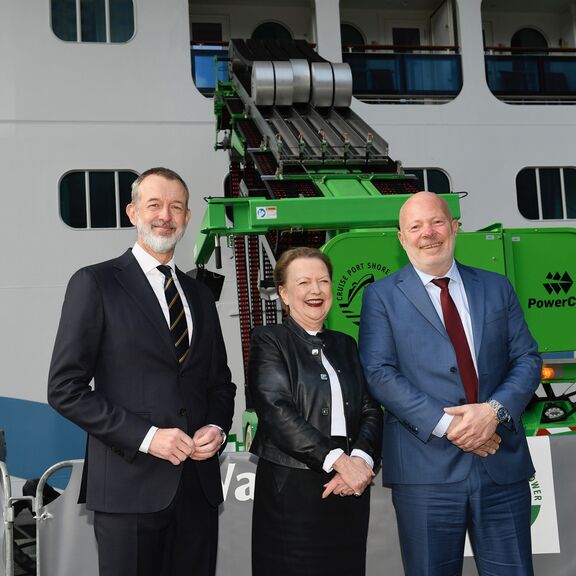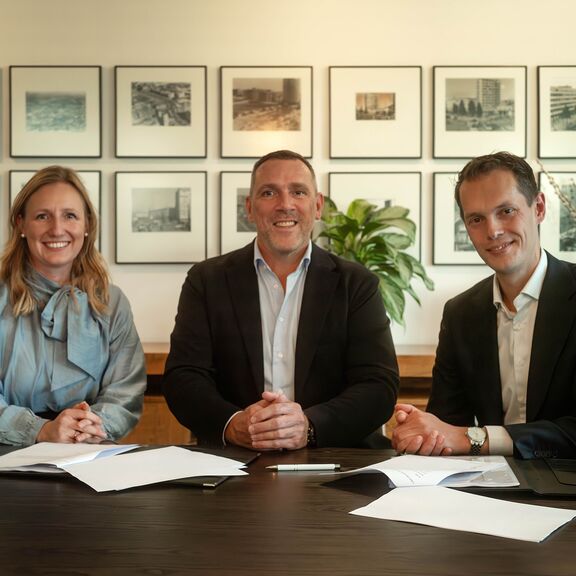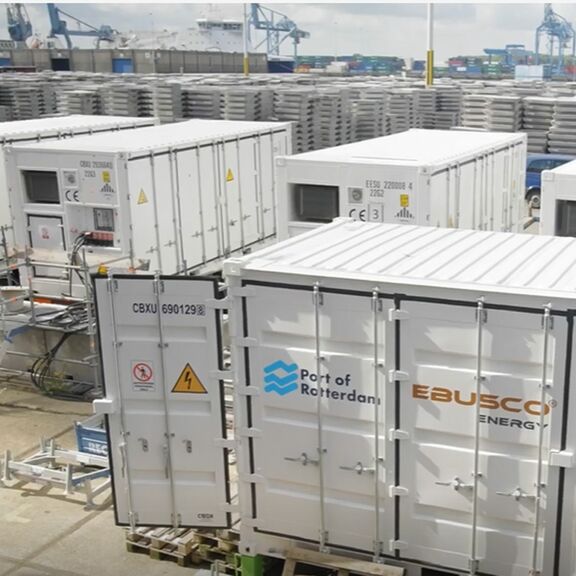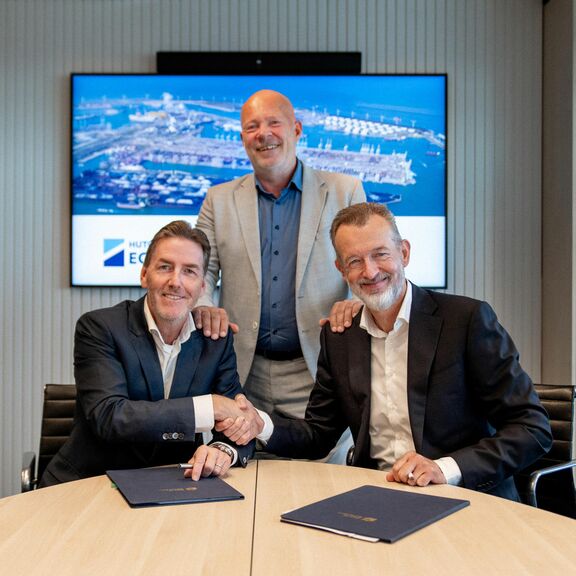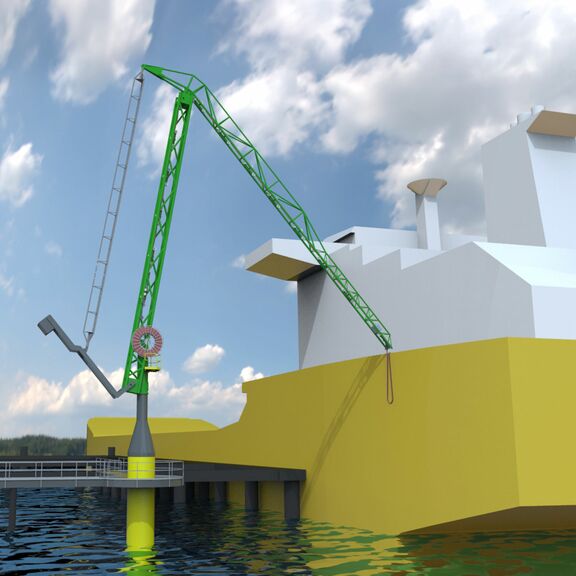
Shore power in Rotterdam
Shore power is an important part of the energy transition. Moored vessels at the quay leave their generators running for the electricity needed on board. The engines make noise and emit particulate matter, nitrogen and CO2 among others. Shore power offers the possibility to considerably reduce that nuisance by supplying vessels with clean electricity from the grid.
5 steps to shore power

By 2030, the Municipality of Rotterdam and Port of Rotterdam Authority want a large proportion of the sea-going vessels to be ‘plugged in’ when they stay at the quay. The Port of Rotterdam Authority works together with its customers (terminals and shipping companies), other ports, network operators and various authorities to realise the joint ambitions. This cooperation, called project CABLE (Connecting All Berths for Lower Emissions), focuses on three areas:
1 The Port of Rotterdam Authority’s public berths for inland shipping, port tugs and sea shipping must have shore power by 2027.
2 According to the EU, container, cruise and passenger terminals must be equipped with shore power by 2030. The Port Authority supports this and encourages the terminals to meet this so-called AFIR obligation.
3 Terminals located near a populated area should be encouraged to install shore power. The Port Authority wants to be a good neighbour for residents around the port.
On the one hand, the shore power programme is aimed at realising and operating shore power at the Port of Rotterdam Authority’s public berths. Additionally, the programme is working to achieve the right preconditions for terminals and shipping companies in the port area to enable the switch to shore power. At international level, the Port of Rotterdam Authority collaborates with other ports on joint challenges, such as standardisation, digitalisation and international policy issues. After which, lessons learned from projects will be mutually shared.
Mid-2024, Heerema, Stena Line, Boskalis, DFDS, Royal Roos and Rotterdam Shortsea Terminals’ berths have shore power for their sea-going vessels. This year, the Port of Rotterdam Authority expects that Cruise Port Rotterdam can provide cruise ships shore power. Furthermore, the Port of Rotterdam Authority is expanding shore power for the public berths for inland shipping, for example on Pier 3 in the Waalhaven.
On the map below, you can see the locations of various shore power projects in the port. By clicking on them, you’ll gain further insight into their status.
Rotterdam Shore Power
The Port Authority and Eneco have established Rotterdam Shore Power as a company offering shore power as a service. Rotterdam Shore Power develops, finances, realises and operates shore power commissioned by clients and thereby helps clients focus on their own expertise and investment agendas. Terminals considering investing in shore power do not necessarily see the realisation and operation of shore power as their most important task or expertise. Furthermore, companies have investment agendas aimed at their own operations and at becoming more sustainable.
More information? Contact:

